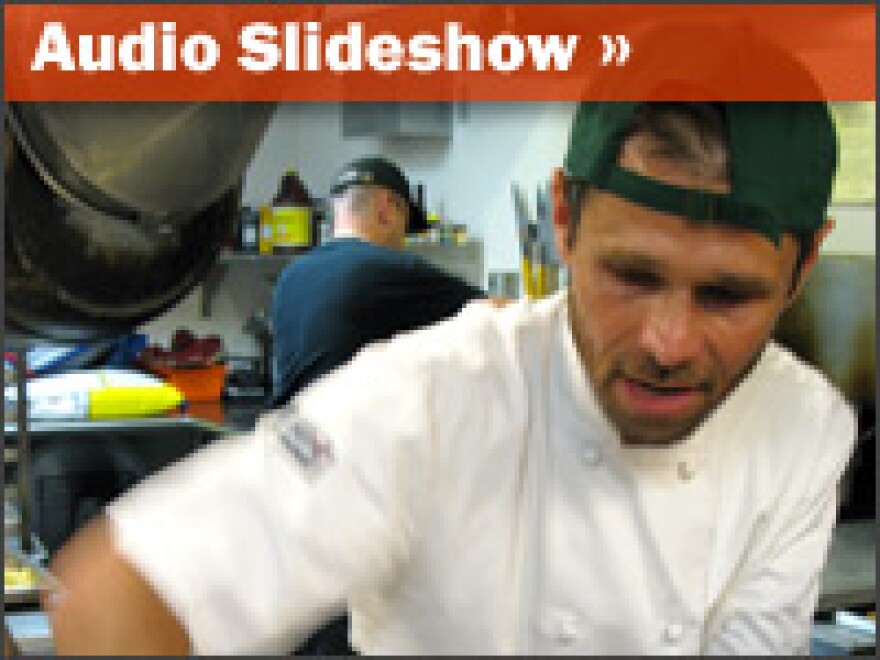
We live in an era when chefs have become TV personalities, corporate moguls and brand names. Emeril Lagasse, for example, recently sold his brand name and other parts of his food empire for $50 million.
Acclaimed chef Steve Badt has followed a different path. Badt used to cook in trendy restaurants in Washington and New York City, the kind of places that got great reviews in The New York Times and The Washington Post, NPR's Daniel Zwerdling tells host Liane Hansen.
"In fact, Badt dreamed that he would run his own restaurant someday," Zwerdling says.
Instead, he walked out of the restaurant world. He quit.
Badt's future wife had given him an ultimatum: the restaurant business or her. It was difficult to imagine having a family while working restaurant hours, so he tried to come up with a way to merge his culinary experience with his desire to help people. He decided his new mission was to run a soup kitchen. And in July 2001, he began doing just that.
He oversees the menu at Miriam's Kitchen in Washington, D.C., which is located in the basement of a church a mile away from the White House. Zwerdling joined Badt and a group of volunteers one recent morning as they were making a six-course breakfast for more than 200 homeless people.
On the menu were omlettes with sauteed mushrooms, ham, onions and cheese; stone-ground grits; homemade home fries; green salad; and strawberry shortcake. Badt called the breakfast typical and says he treats his guests as paying customers.
He says he realized one day that once you're on the street, it's hard to get back on your feet.
"So my energy comes from the fact that — wow, if I can start these guys off with a beautiful meal and a great meal and a nutritious meal, will that increase the odds that maybe they'll get housing, that maybe they'll get off drugs, that maybe they'll have a good day?" Badt says.
Copyright 2023 NPR. To see more, visit https://www.npr.org.

